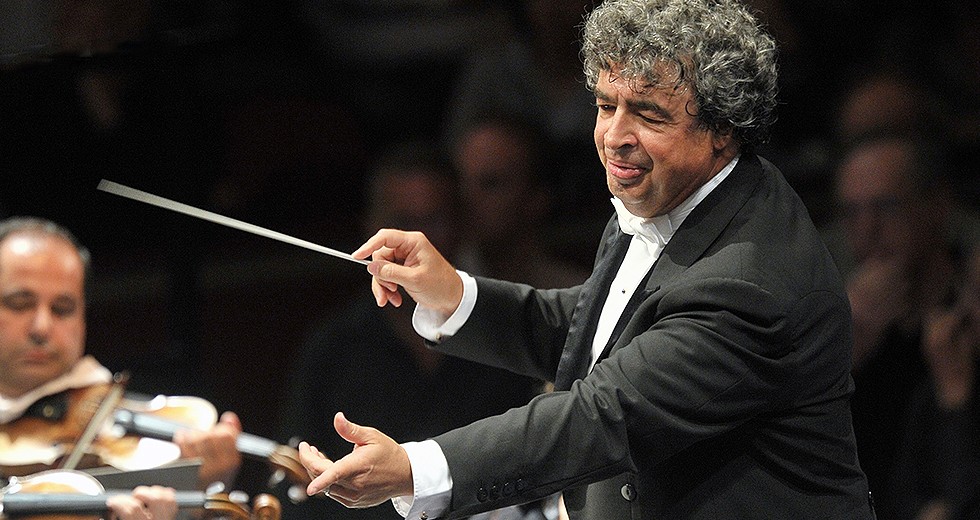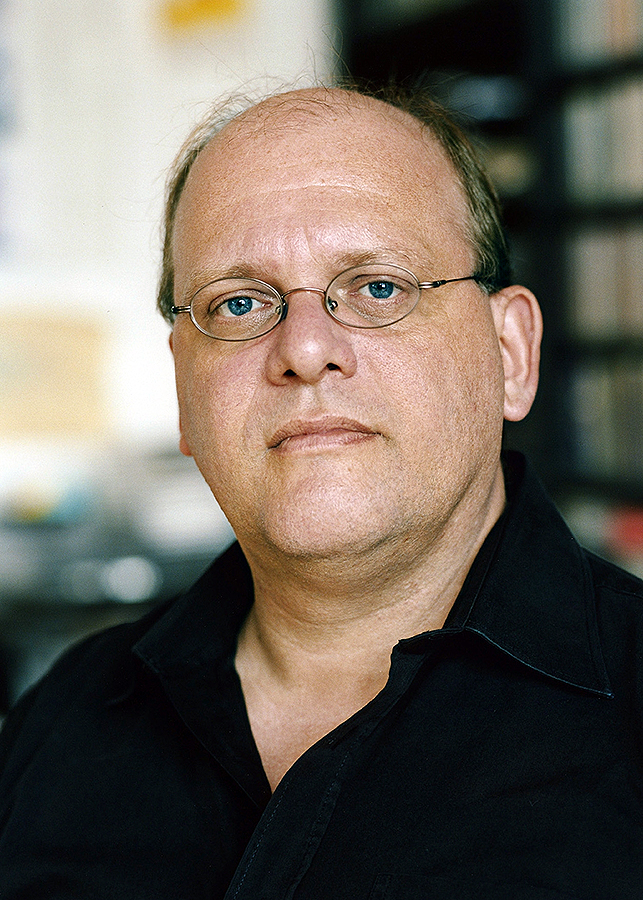
Many conductors develop an affinity for a composer or a group of composers from the past or present and make a point of performing their music. Riccardo Muti, music director of the Chicago Symphony Orchestra, for example, is internationally acknowledged as one of the world’s foremost interpreters of Giuseppe Verdi. James Conlon has made it his lifelong mission to uncover and promote the often forgotten works of composers suppressed or killed by the Nazis. Leonard Slatkin has been a strong advocate for 20th-century American composers like Roger Sessions and William Schuman, whose works have unfairly fallen out of favor.
Acclaimed Russian-born conductor Semyon Bychkov has emerged as a champion of German composer Detlev Glanert after first encountering his music while serving as principal conductor of the WDR Symphony Orchestra Cologne in 1997-2010. In 2009, Bychkov led the world premiere of the composer’s Shoreless River, an 18-minute work co-commissioned by the WDR Symphony. Glanert, who turns 55 in September, is best known for his more than a dozen stage works, including such operas as Caligula (2006) and the Drei Wasserspiele trilogy, based on plays by Thornton Wilder, but he also has written an array of chamber and instrumental works. “I’m interested in music that is being born today, and he’s one of the very important composers at the moment and one of the very few genuinely active opera composers, who is not only writing operas but [having them] performed,” Bychkov said.
Because most of Glanert’s career has been centered in Europe, he remains little known in the United States — a situation that Bychkov is helping to change. He led the American premiere of Glanert’s Theatrum Bestiraum (2004-05) with the Chicago Symphony Orchestra in 2010, and the conductor returns Oct. 8-13 to Orchestra Hall for the first American (and his first) performances of Glanert’s Brahms-Fantasie. The program also will feature Brahms’ Symphony No. 1 and Violin Concerto in D Major with Renaud Capuçon as soloist. (Bychkov will repeat this lineup, substituting Brahms’ Double Concerto for the Violin Concerto, during concerts Oct. 21-24 with the New York Philharmonic.)
In Glanert’s music, Bychkov said, sound quality is as important as the intellectual concepts behind it, and the composer has a “tremendous feeling” for orchestral color. The maestro recalled that after a rehearsal for the CSO’s performances of Theatrum Bestiraum, one of the orchestra’s musicians made a point of stopping by the podium. “’What incredible music. I really love this music,’ he said. And he said it with such passion,” Bychkov said. “It is very rare with new music, when one has no experience with it, to be able to have connected to it after a matter of two days. That really tells you something.”
Although Glanert’s music is unquestionably contemporary, he feels a strong connection to composers of the past. “So he has his own face,” Bychkov said, “yet he is not removed from the history of music. For example, Theatrum Bestiraum, which was the first work of his that I heard and immediately commanded my attention, it’s a tremendously theatrical piece. The title betrays it. But at the same time, one hears certain references in it. One hears the ending, which is so much Shostakovich. He has a tremendous affection and affinity for the music of Shostakovich.”
Glanert also has a strong tie to Brahms. In 2004, he orchestrated Brahms’ Four Serious Songs, Op. 121, and added his own preludes between the vocal works. In the process, Bychkov said, Glanert was able to be respectful of Brahms and maintain his own compositional identity at the same time. “[Italian composer] Luciano Berio has done with it the sketches of Schubert’s last symphony,” Bychkov said. “He has reworked them and filled in between the sketches with his own music. It is another amazing creation. It’s called Rendering [1989-90]. And [Four Serious Songs] is the first time that I have seen someone like Detlev Glanert succeed with something fairly similar since Luciano Berio. So that started my interest in his music, and it has remained to this day.”
Glanert’s Brahms-Fantasie, which is subtitled “Heliogravure” for Orchestra, was premiered by conductor Donald Runnicles and the BBC Scottish Symphony Orchestra in Glasgow in March 2012. The orchestra commissioned four composers to write short companion pieces to Brahms’ four symphonies. Glanert’s creation to accompany the Symphony No. 1 was the last work in the project, and Guardian music critic Kate Molleson called it the most Brahmsian. “A clangy opening cluster,” she wrote, “and gauzes of white noise make for explicitly contemporary decoration, but essentially this is more pastiche than homage, and the sporadic grandeur sounds like an effort to digest a whole symphony in just 10 minutes. Still, Glanert is expert at laying down atmosphere in an instant, and gives the orchestra some super sounds to play.”
Although Bychkov is doing much to raise Glanert’s profile in the United States, that is not his principal goal. “What we do as musicians,” he said, “is that we share the music we love with people who are either familiar with it or not. And when it comes to the music of today, there is so much of it. When someone believes in it, one wants other people to know it. Whether it’s in America or Japan or China or any place else is irrelevant. The longer one stays with a piece, the more one identifies with it. The piece is what it is, but one grows with it, and then one is able to share it more convincingly with the audience.”
Kyle MacMillan, former classical music critic of the Denver Post, is a Chicago-based arts writer.
TOP: Semyon Bychkov on the podium. | Photo: Chris Christodouplous
